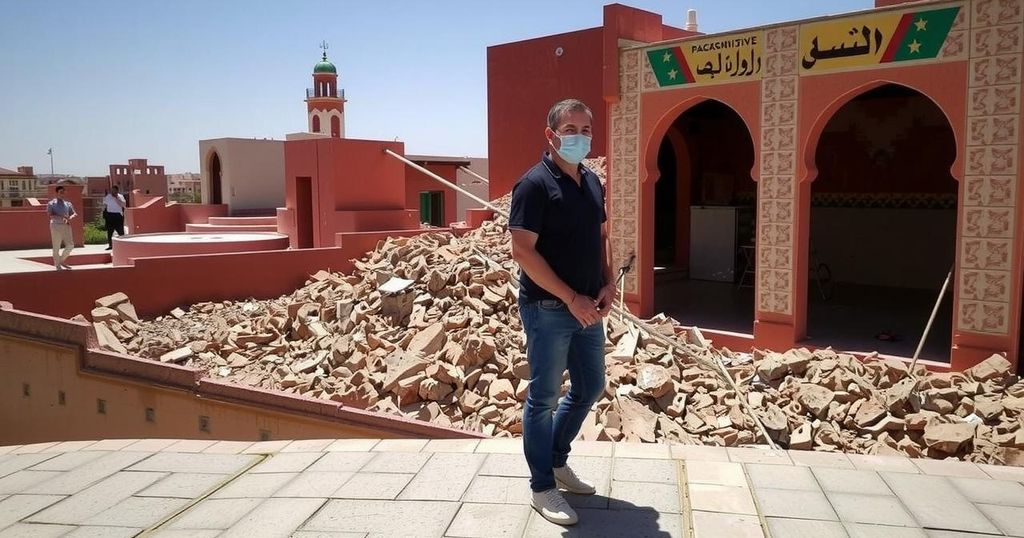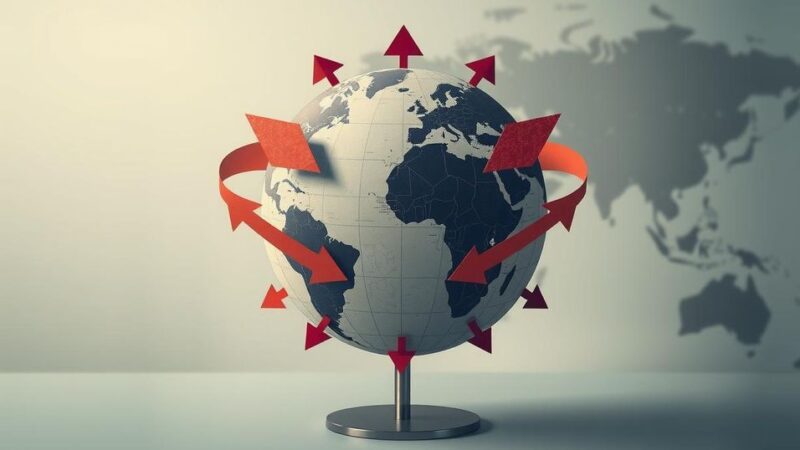Four activists, including Said Ait Mahdi, were charged for critiquing the earthquake response in Morocco. Their lawyer stated the accusations stemmed from local officials’ complaints regarding social media posts. The earthquake resulted in nearly 3,000 deaths, with many families still struggling in the aftermath. Reconstruction efforts are underway, financed by a substantial government budget.
Four activists advocating for the victims of the devastating 2023 earthquake in Morocco found themselves in a Marrakesh court facing serious charges, including defamation. Said Ait Mahdi, the leader of the Al Haouz Earthquake Victims Coordination, remains in custody, while his companions, who are charged with insulting public officials, are currently free. According to their lawyer, Mohamed Nouini, the charges arose from complaints lodged by local officials regarding social media posts that were deemed offensive.
The earthquake struck Al Haouz province, the most affected area, in September and resulted in near 3,000 fatalities alongside thousands more injuries. It demolished tens of thousands of homes, leaving countless families homeless as they endured the harsh winter conditions outdoors. Ait Mahdi’s organization has been vocal in advocating for quicker restoration efforts and more comprehensive support for those impacted by this disaster. As of early December, the Moroccan government reported that it had issued approximately 57,000 reconstruction permits and had completed or was in the process of constructing over 35,000 houses. Moreover, authorities announced a five-year reconstruction initiative with a projected budget of $11.7 billion, allocating around $740 million specifically for assisting affected families in the rebuilding of their homes.
In September 2023, Morocco experienced a catastrophic 6.8-magnitude earthquake, primarily impacting the Al Haouz province south of Marrakesh. The disaster led to a staggering loss of life and property, with nearly 3,000 casualties and extensive destruction of housing. Many families have been displaced and are presently facing difficult living conditions as they await reconstruction efforts. In response, the government initiated a significant reconstruction plan expected to span five years, aimed at revitalizing the affected areas and providing necessary support to the victims.
The ongoing legal struggles faced by the activists underscore the tensions between public officials and civil society in Morocco, particularly following a disaster that has profoundly impacted many lives. While the Moroccan government has initiated reconstruction efforts, advocates like Ait Mahdi are pressing for a more urgent and supportive response for victims of the earthquake. As the court proceedings unfold, they serve as both a possible reflection of the delicate balance between dissent and governance in disaster recovery contexts.
Original Source: www.barrons.com






